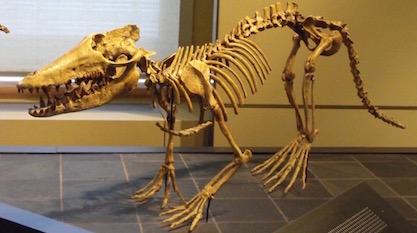 Evolution
Evolution
 Intelligent Design
Intelligent Design
Killer Whales — Zombie Science Author Explains a Fatal Challenge to Evolution

There are a few problems with conventional accounts of whale evolution. Actually you could group them under three headings. Together they’re a killer.
First, there is the massive reengineering required to turn a swimming but otherwise land-living mammal into an exclusively marine mammal. Second, there is the difficulty that all this, every single step on the way, would need to be achieved through blind, purposeless shuffling alone. Third, there is the short time period available to accomplish it by such unintelligent, purely natural processes – under a million years, it now seems.
In his new book Zombie Science: More Icons of Evolution, biologist Jonathan Wells devotes a chapter to the fatal challenge to Darwinian theory posed by the enigma of whales. In a brief video conversation, starting with how the wolf-life fossil Pakicteus (“Pakistani whale”) was named, you can see Dr. Wells trying gamely to suppress a smile at the absurdity of it all.
Darwin thought whales came from bears, and speculated as much in the original edition of the Origin of Species:
I can see no difficulty in a race of bears being rendered, by natural selection, more and more aquatic in their structure and habits, with larger and larger mouths, till a creature was produced as monstrous as a whale.
Right, they opened their mouths wider and wider until gradually…they turned into whales. Bears did. Darwin excised the proposed bear-whale transition from future editions after being mocked for it by readers. In the immediately preceding sentence he gives the evidence of North American black bears, “swimming for hours with widely open mouth, thus catching, almost like a whale, insects in the water.” That survived into future editions.
But we can cut Darwin a break and, like Jonathan Wells, curb our merriment. A wolf, a bear, maybe a cow…“Impossible” doesn’t come in denominations.
